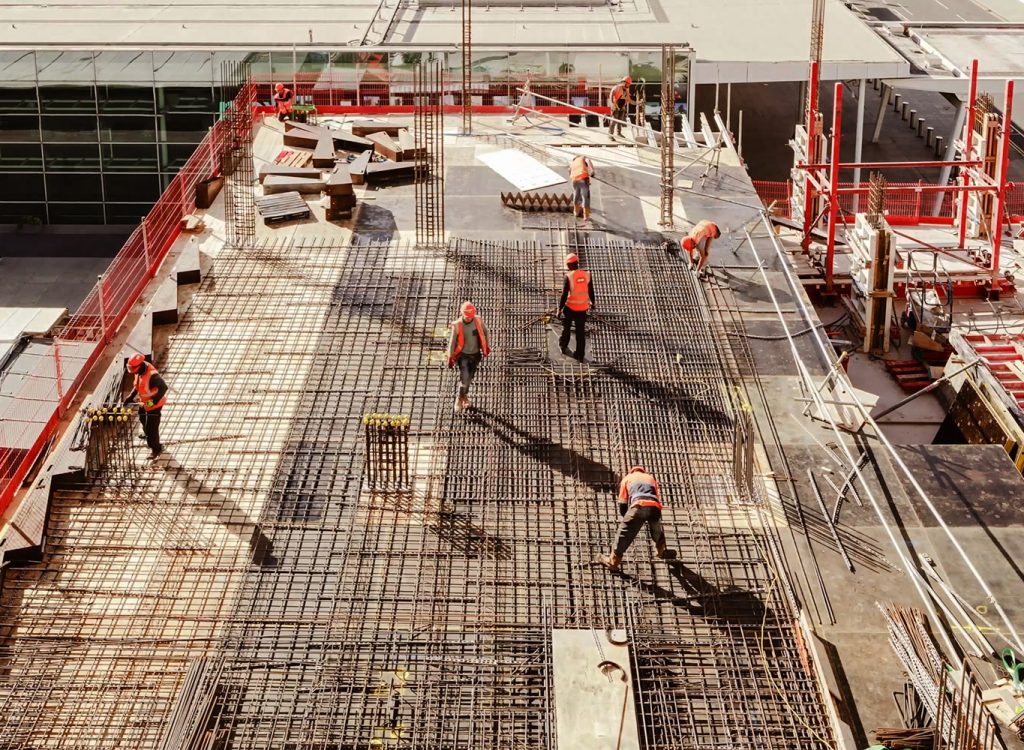
Embracing AI: reducing operational downtime in rail
With recent disruption, customer experience ratings have dropped, with delay compensation schemes becoming routinely used by many passengers. But what role could AI play in delivering improvements?

Cost is and always has been a strategic and leadership imperative
In September 2020, The Construction Index published its latest list of the UK’s Top 100 Construction firms – reporting that “finances were weakening even before the [Covid-19] outbreak began” – with average profit margins running at 2.1%, down from 2.5% the previous year. In addition, in March of this year, Building Magazine reported that “more than 1,600 building firms have gone bust since pandemic began last March”, outstripping the hospitality and retail sectors.
Long-standing low and recently falling margins in construction, plus high levels of insolvency, are in danger of becoming an expected norm. But does it really have to be that way? While the vitally important topics of market penetration, turnover growth, decarbonisation, social value, technology adoption and skills are the focus of top table strategic discussions, is the perhaps more ‘mundane’ topic of cost reduction and control being given enough leadership attention? Would moving cost right to the top of the strategic agenda break the downward margin spiral, increase the chance of survival and give businesses the much-needed headroom to invest in other strategic pursuits?
Think differently and lead the journey to double-digit margins
So, what should construction firms do differently? As with most transformational change, it starts with leadership belief. Belief that double-digit margins are a real possibility. In the Construction Index Top 100 list, three firms last year demonstrated that it is. Yes, only three; but three none the less.
From that belief must come a roadmap to align the organisation around – with cost reduction and control at its core, linked to the wider (and perhaps more motivational) opportunities that can then be unlocked. Building from there, a coherent programme is needed, to tackle costs in all aspects of the business, across all programmes and projects, and throughout an organisation’s supply chain.
Here, are three areas that businesses should focus on to achieve a step-change in costs:
1. Start in-house by recognising that nothing in your own business is truly ‘fixed’
There’s a common misconception that ‘overheads’ are somehow fixed. Start by analysing the financial and operational data to challenge that perception for every cost!
For example, one lesson the Covid pandemic has taught us is that remote and agile team-working is a real possibility; and that we can be flexible (if we need to be) in how we interact and in our ways of working. Operating model designs, organisational structural hierarchies, long-standing processes, and historic decisions of where to carry capacity all build-in cost. They should be challenged and adapted regularly as, over time, there is a natural tendency for inefficiency to creep in. With some creative thinking, these models and constructs can be simplified and made more agile, so that those costs can be flexed.
The operating strategy question to keep on answering is ‘what capabilities (and where to place them) will give us a competitive advantage and bring us the most success now and in the future?’ Everything else is a cost that construction firms cannot afford.



2. Put data and cost control at the heart of your project and supply chain practices
Construction firms and projects amass cost, specification and performance data that is often then poorly utilised going forward. The tragedy is that, even with today’s technologies, very few businesses have yet to untap that potential. A lack of system investments can form a part of the problem. However, a bigger contributor is a mind-set that permeates in seeing all projects as unique, thereby believing that there is nothing to be learnt from historical data. These mind-sets must be changed. Through the insightful analysis of previous projects, new insights can be gained to inform the optimal ‘should cost’ estimating of future projects. A project materials analysis will compare estimated and actual materials spend across broadly comparable projects with similar characteristics and other industry indices. These insights can then be deployed to target opportunities with the supply base, informing value engineering and fact-based (target cost) negotiations with existing and potential new suppliers.
On the assumption that you have made the leap of faith on this, many in your team will still need convincing. The way to do this is to pilot and prove it – select previous projects to analyse, then apply these new cost insights on one or more existing projects i.e. use the data to prove the value of the data. Then roll-out those learnings by getting the right data to the right people at the right time to make the right decisions; while putting in place robust spend controls across all your projects so it becomes business as usual.

3. Pull all the levers in tandem for a transformation in cost
In capital programmes and projects, as much as 75% of the success is ‘baked- in’ through the set-up, early decision-making and first design steps. Cost transformation programmes are no different. If designed, set-up and governed well, businesses can achieve a step-change in costs – by realigning capacity and removing organisational complexity, embedding process quality, and building in resource agility, while targeting data-informed procurement to unlock greater value. In our experience, a total cost reduction of 10% can be achieved which then filters straight to the bottom line.
If you are thinking this is not easy, you are right! But double-digit margins are within your grasp should you choose to transform your operational and supply chain data into actionable intelligence, truly challenge and benchmark your operations against what good looks like and deploy transformation and implementation expertise – through a well-structured and co-ordinated programme – to achieve a measurable and sustainable step-change in costs.


Taking it from a strategic and leadership imperative to business-as-usual
To realise the full benefits, cost reduction and control must receive constant and visible leadership attention, to ensure it stays right at the top of the business’s strategic agenda. However, once businesses have made the step-change in costs, the journey must not end there. Regular organisational realignment, data-informed decision making, robust spend controls and year-on-year continuous improvements are a necessity to lock-in these new ways of working as business-as-usual.
Get in touch
Related Insights

With recent disruption, customer experience ratings have dropped, with delay compensation schemes becoming routinely used by many passengers. But what role could AI play in delivering improvements?

Train operating companies are under pressure to deliver a consistent positive experience, all while attempting to modernise. But how can this happen and could the Rail Reform Bill help?

As the industry prepares for the launch of Great British Railways (GBR), there is an opportunity to improve operational efficiency, reduce cost and improve passenger services.
Subscribe to our newsletter